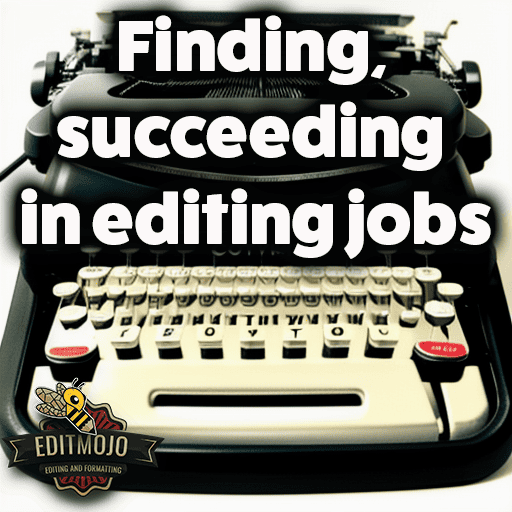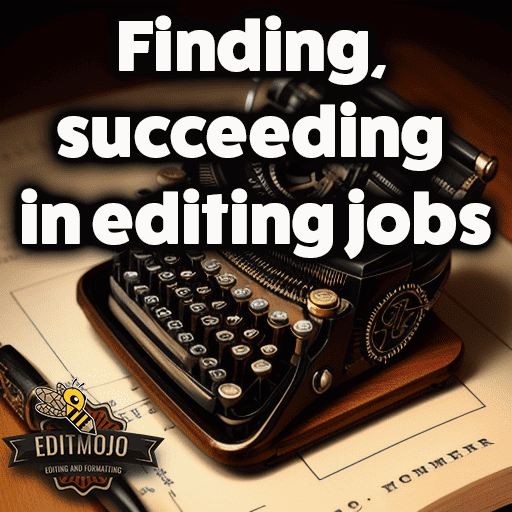Finding, succeeding in editing jobs
Finding, succeeding in editing jobs. In the world of content creation, editors play a vital role in ensuring the quality and effectiveness of the material. Whether it’s a book, a blog post, an article, or even a social media post, an editor’s touch can make the difference between content that shines and content that falls flat. But how does one find and succeed in editing jobs? This article aims to provide a comprehensive guide to finding, landing, and excelling in editing roles. We’ll explore the different types of editing jobs, the skills you need, and where to find these opportunities. Plus, we’ll delve into the growing field of remote editing jobs and share platforms where you can start your search.
Key Takeaways
| Section | Key Points |
|---|---|
| Understanding the Role of an Editor | Editors check and refine content before publication, ensuring clarity, correctness, and coherence. |
| Different Types of Editing Jobs | There are various types of editors, including proofreaders, commissioning editors, content editors, and chief editors. |
| Essential Skills for an Editor | Key skills include structural editing, attention to detail, and SEO knowledge. |
| How to Become an Editor | Building a portfolio and gaining experience are crucial steps to becoming an editor. |
| Where to Find Editing Jobs | Opportunities can be found through personal networks, online job boards, social media, and direct applications to publications. |
| Remote Editing Jobs | Remote editing jobs offer flexibility and are becoming more prevalent. Success stories highlight the potential of this field. |
| Platforms to Find Editing Jobs | Numerous platforms, such as Reedsy, LinkedIn, and FlexJobs, offer editing job listings. |
Understanding the Role of an Editor
In the realm of content creation, the editor is the unsung hero. They are the ones who take raw, unpolished content and turn it into a masterpiece. They check and refine content before it goes to publication, ensuring that it is clear, correct, and coherent. But what exactly does an editor do? Let’s dive in and find out.

Different Types of Editing Jobs
Just as there are different types of content, there are also different types of editors. From proofreaders who focus on the nitty-gritty details to commissioning editors who decide what gets published, each type of editor plays a unique role in the content creation process. Understanding these roles can help you find the editing job that’s right for you.
Essential Skills for an Editor
Being an editor requires a specific set of skills. These include structural editing (ensuring the content flows well), attention to detail (catching every little mistake), and SEO knowledge (making sure the content gets found online). If you’re considering a career in editing, these are the skills you’ll need to succeed.
How to Become an Editor
So, you’ve decided you want to be an editor. Now what? The first step is to build a portfolio. This can be done by editing content for friends, family, or local businesses. Once you have some experience under your belt, you can start looking for professional editing jobs.

Where to Find Editing Jobs
There are many places to find editing jobs. You can start with your own network – ask around and see if anyone you know needs an editor. Online job boards and social media are also great places to look. And don’t forget about direct applications to publications – many editors got their start this way.
Remote Editing Jobs: The New Normal
With the rise of remote work, more and more editing jobs are being done from home. This offers a great deal of flexibility and can be a great option
for those who prefer to work in their own space. We’ll share some success stories of individuals who have found success in remote editing jobs and provide tips on how you can do the same.
Platforms to Find Editing Jobs
In today’s digital age, there are numerous platforms where you can find editing jobs. From industry-specific job boards like Publishers Marketplace and Reedsy, to general job platforms like LinkedIn and Indeed, there are plenty of opportunities out there. We’ll explore these platforms and more, helping you find the best place to start your editing job search.

Top Five Questions and Answers
Q1: What skills do I need to become an editor?
A: Key skills for an editor include structural editing, attention to detail, and SEO knowledge. You also need excellent written communication skills and a good understanding of grammar and style.
Q2: Where can I find editing jobs?
A: You can find editing jobs through your personal network, online job boards, social media, and by applying directly to publications. There are also numerous platforms like Reedsy, LinkedIn, and FlexJobs that list editing jobs.
Q3: What are the different types of editing jobs?
A: There are various types of editing jobs, including proofreaders, commissioning editors, content editors, and chief editors. Each role has different responsibilities and requires different skills.
Q4: Can I work as an editor remotely?
A: Yes, many editing jobs can be done remotely. With the rise of remote work, more and more companies are offering remote editing positions.
Q5: How can I succeed in an editing job?
A: To succeed in an editing job, you need to hone your editing skills, build a strong portfolio, and gain experience. It’s also important to stay updated with the latest trends in content creation and SEO.
Succeeding in Editing Jobs: Tips and Strategies
Success in editing jobs doesn’t come overnight. It requires dedication, continuous learning, and a keen eye for detail. Here are some tips and strategies to help you succeed in your editing career.
Continuous Learning and Improvement
The world of content creation is always evolving, and as an editor, you need to keep up with the changes. This means continuously learning and improving your skills. Attend workshops, take online courses, and read up on the latest trends in editing and content creation.
Networking is crucial in any career, and editing is no exception. Connect with other editors and professionals in the content creation industry. They can provide valuable insights, advice, and job opportunities. Platforms like LinkedIn are great for professional networking.
Attention to Detail
As an editor, your job is to catch mistakes and improve the content’s quality. This requires a high level of attention to detail. Make sure to thoroughly check every piece of content you work on.
Understanding Your Audience
An important part of editing is understanding the audience. Who are they? What are their interests? What kind of language do they use? Having a clear understanding of the audience will help you edit the content in a way that resonates with them.
Time Management
Editing can be time-consuming, especially when you’re working on large pieces of content. Good time management skills are essential. Make sure to plan your time effectively and avoid procrastination.
Conclusion
Finding and succeeding in editing jobs may seem daunting, but with the right skills, strategies, and resources, it’s entirely achievable. Whether you’re just starting out or looking to advance your editing career, this guide provides a comprehensive overview of what it takes to succeed in the editing field. Remember, every great editor started somewhere. With dedication, continuous learning, and a bit of networking, you too can have a successful career in editing.
Q1: How can I improve my editing skills?
A: Continuous learning is key to improving your editing skills. Attend workshops, take online courses, and read up on the latest trends in editing and content creation. Practice is also crucial – the more you edit, the better you’ll get.
Q2: How important is networking in the editing field?
A: Networking is very important in the editing field. It can provide valuable insights, advice, and job opportunities. Platforms like LinkedIn are great for professional networking.
Q3: What does ‘attention to detail’ mean in editing?
A: In editing, attention to detail means thoroughly checking every piece of content for mistakes and areas of improvement. It involves looking at both the big picture and the small details.
Q4: Why is understanding the audience important in editing?
A: Understanding the audience is important because it helps you edit the content in a way that resonates with them. It allows you to tailor the language, tone, and style to match the audience’s preferences and expectations.
Q5: How can I manage my time effectively as an editor?
A: Good time management involves planning your time effectively and avoiding procrastination. Break down large tasks into smaller ones, set deadlines for yourself, and take regular breaks to avoid burnout.
